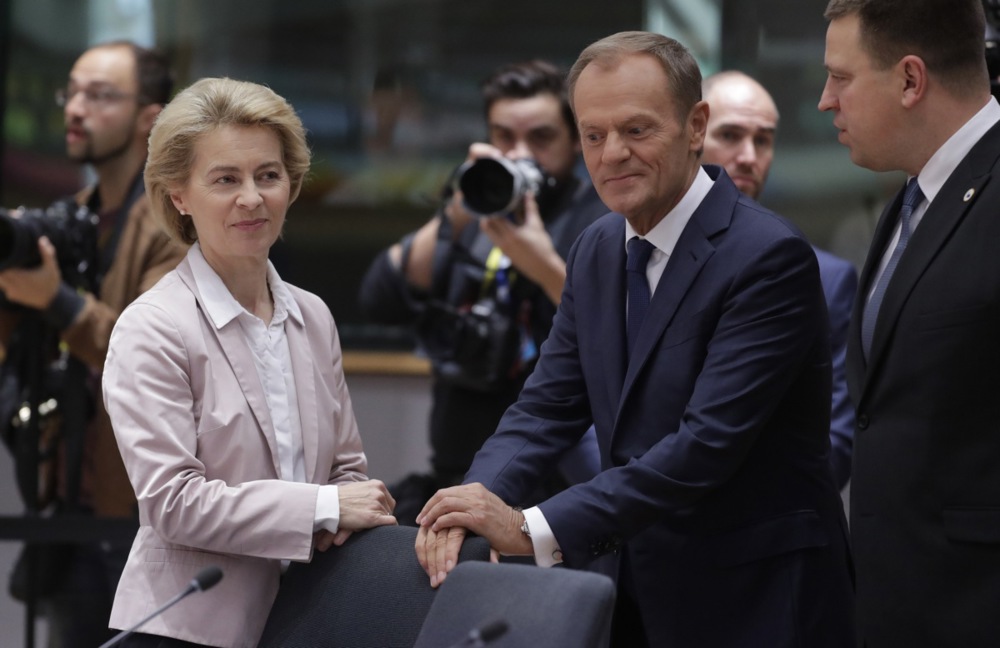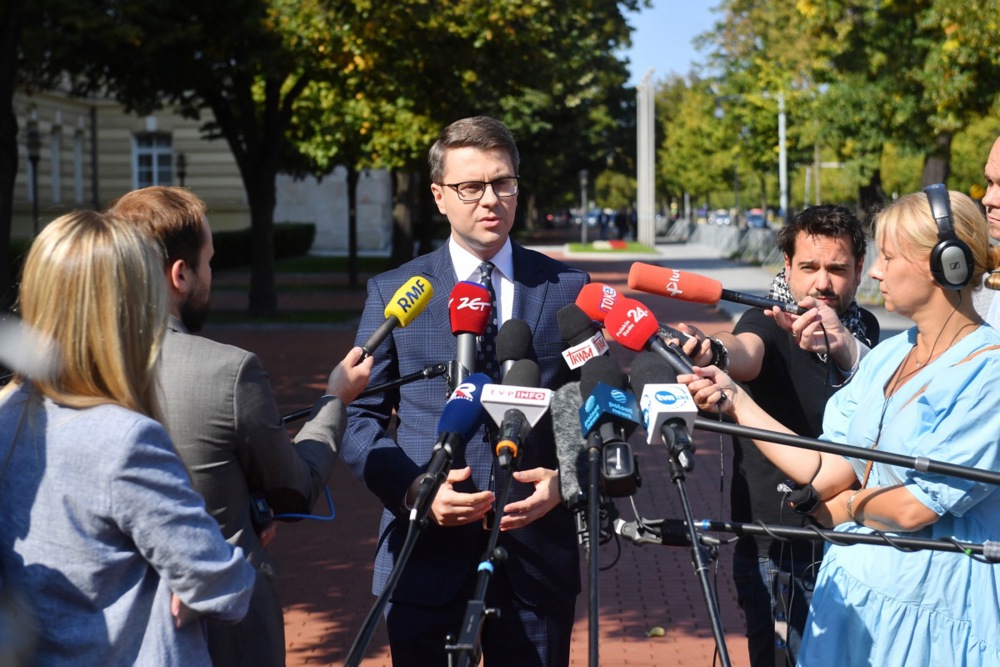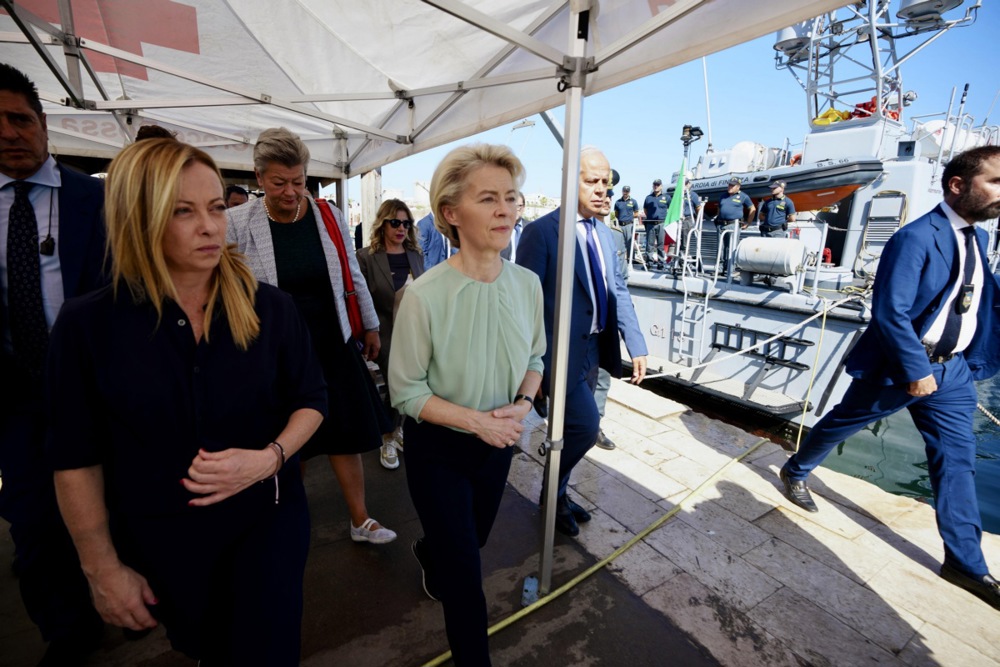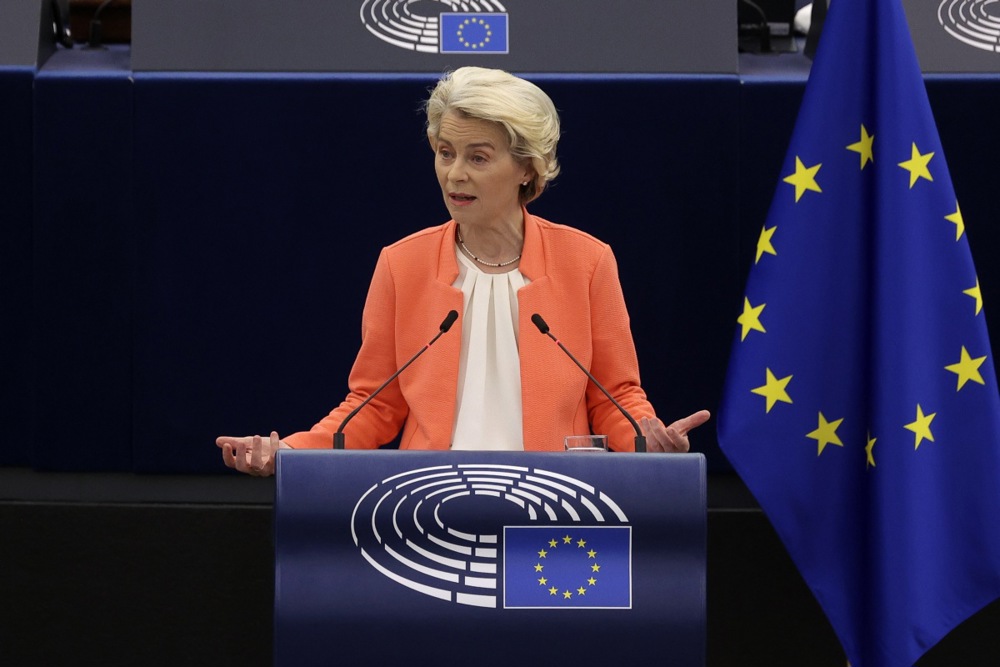Poland’s opposition Conservatives (PiS) claimed European Commission President Ursula von der Leyen and then-opposition leader Donald Tusk colluded in delaying European Union funding for two years so that the money would not be received during the lifetime of the last PiS government.
The PiS made the allegation as Poland has just received the largest single tranche of EU cash in the country’s 20 years of membership of the bloc following the election of Tusk as Prime Minister in October last year.
The Tusk Government’s minister for EU and regional funds Katarzyna Pełczynska announced on April 15 that Poland had received €6.3 billion of EU funds now that Brussels has unlocked them after they were frozen under the (PiS) government over a dispute about its judicial reforms.
The money comes as Poland’s first application to receive funds from the post-pandemic Recovery and Resilience Facility (RRF) for the country’s National Reconstruction Plan.
Poland has been allocated almost €60 billion from the RFF, including just over €25 billion in grants and €34.5 billion in preferential loans. Of those funds, 47 per cent is allocated to climate objectives, 22 per cent to social reforms and 21 per cent for digital transformation.
Since joining the EU in May 2004, Poland has been the largest net recipient of EU cash, receiving just over €232 billion from the bloc’s budget while contributing around €77 billion.
Pełczynska also revealed that the country would be filing for two more tranches of payments in August, meaning that the country would be likely to have received €23 billion by the end of the year. He argued that the “transfers means that Poland has achieved the milestones and requirements related to the first payment application”.
The PiS claimed Brussels froze the money during its rule in the hope of bringing a more EU-friendly government to power in Poland. It added that the funds have now been unfrozen despite Tusk’s Government not having implemented the “milestones” previously outlined by the EU, such as judicial legislation changes.
Since his arrival in office late last year, Tusk has proposed reforms to the judiciary that have yet to clear the Polish Parliament and which Polish President Andrzej Duda has vowed to veto. Thus, there have been no such reforms in Poland since the new Government took power.
Speaking on April 13, former PiS prime minister Mateusz Morawiecki blamed Tusk’s Civic Platform (PO) party for the money not having arrived earlier, claiming that was because the PO had been “begging von der Leyen not to pay”.
On April 15, Waldemar Buda MP, the EU and regional funds minister in the previous PiS government, called for the next European Parliament to investigate the withholding of EU funds for Poland.
“In the next term of office of the European Parliament, a special commission must be established to explain how it is possible that funds from for Poland were blocked for two years,” said Buda.
He added that it “will have to explain how it was possible that collusion between the Commission’s President and the candidate for prime minister in Poland [Tusk] led to such a long delay” – a delay Buda claimed could mean Poland is unable to use up its full allocation of funding.
According to him, the conditions for paying the funds had already been met by June 2022 when the proposed legislation on judicial reform had been passed.
The fact that the cash remained undisbursed was because of an “arrangement between Donald Tusk and Ursula von der Leyen”, Buda claimed.
The legislation on disciplinary procedures and the status of judges had been agreed between the then-PiS government and the EC but the body did not release the funds and demanded further action with regard to addressing its concerns over rule-of-law compliance in Poland.
The delay in the arrival of the EU funds became an issue in the run-up to the general election in October last year, which saw PiS lose its parliamentary majority and the eventual formation of a centre-left government led by Tusk.
During that election campaign, one of Tusk’s key promises was that he would ensure that the EU funds for Poland would be unblocked “within 24 hours” of his arrival in office.





